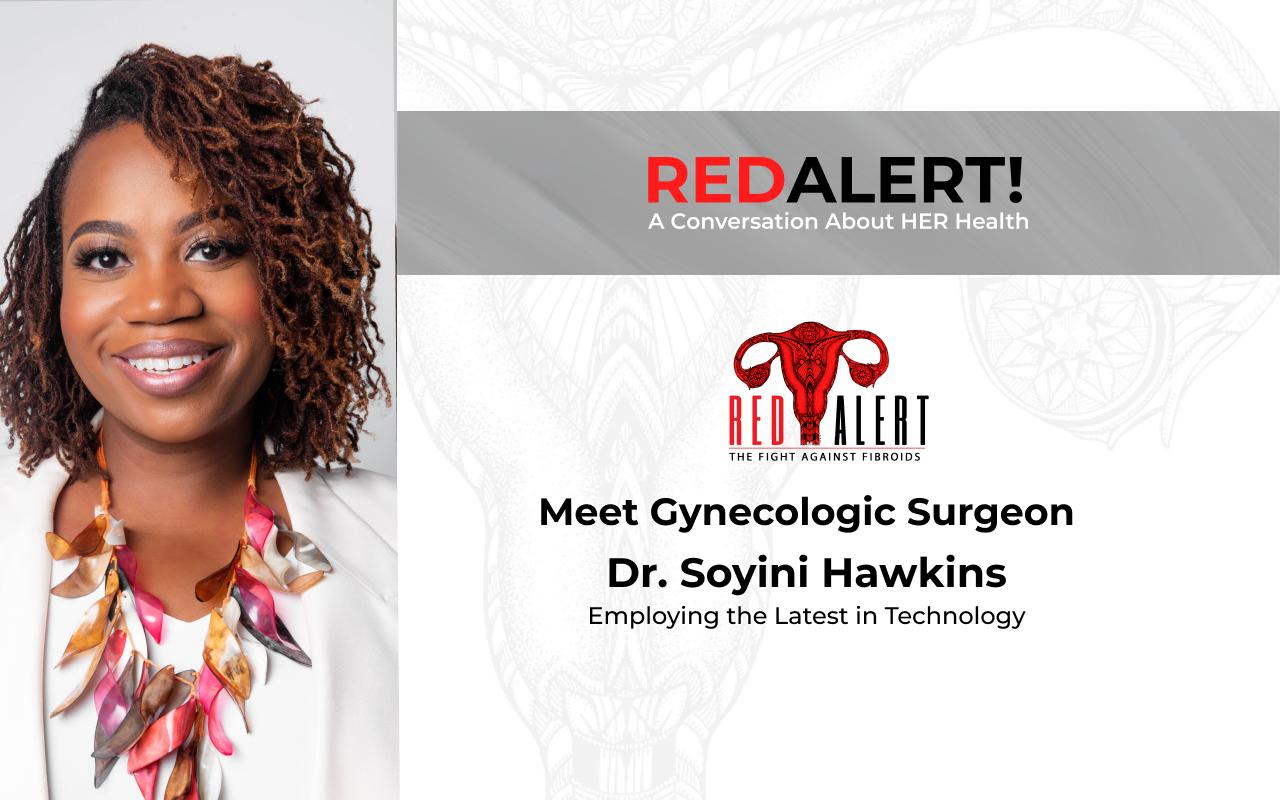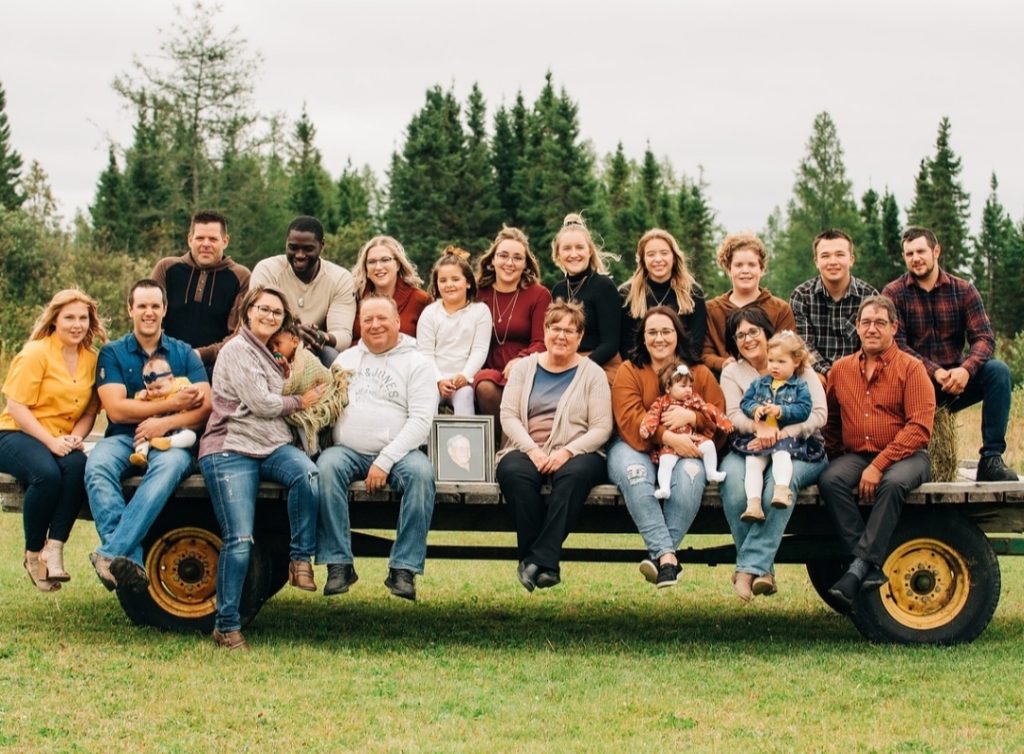“There are so many beautiful aspects of being a woman…but suffering in silence is not one of them. I don’t believe physical pain is something we should feel we have to live with.”
As new advancements in medical treatments continue to be made, some of the latest innovative technology for healthcare is becoming much more widely accessible to patients. Treatments that once required significant downtime following surgery are being replaced with outpatient procedures that have patients back to work in a matter of days or weeks instead of months.
New developments in women’s health treatments—specifically in the treatment of fibroids—is just one of the topics that arose during my recent conversation with Dr. Soyini Hawkins of the Fibroid and Pelvic Wellness Center of Georgia.
During our time together, she also shared how she got her start in women’s health, what inspired her to pursue the field of medicine in the first place, and why it’s so important for women to research what options are available to them when it comes to treatments.
The Path to Women’s Health
Although her interest in women’s healthcare began around the time she visited a gynecologist for the first time, Dr. Hawkins recalls she initially set her sights on medicine much earlier—at the age of just five years old. First imagining her future self as a nurse or EMT, she attributes her determination to become a doctor to her fifth-grade teacher. “My teacher knew I was interested in medicine and asked, ‘Why not a doctor? Reach for the stars!’ And that was it for me. From that day on, I told everyone in the world I was going to be a doctor.”
Later, as she began researching women’s health to learn more about gynecology, she discovered the field offered an ideal balance between surgical procedures and one-on-one interactions with patients. “I felt like it was the best of both worlds. It was exciting to think about delivering babies—bringing life into the world—but also working closely with patients and developing those relationships over time. When I began to shadow people during my residency, I discovered I was very surgically inclined.”
Dr. Hawkins is now a board-certified, fellowship-trained minimally invasive gynecologic surgeon. In 2014, she moved to Georgia and helped found the Fibroid and Pelvic Wellness Center where she remains today.
A Focus on Fibroids
When asked what led her to focus on fibroid treatments specifically, Dr. Hawkins shared that the path to fibroid treatment was personal for her. “After finishing my gynecology residency, I got into taking care of patients with fibroids literally because of my own fibroid journey. When I had the option to find and focus on my niche, I chose something that I thought I could be very in tune with and also very compassionate with in regard to how my patients were feeling—as I had been treated for fibroids myself.”
Dr. Hawkins has since made a number of minimally invasive procedures available to her patients, including ones to treat fibroids.
While benign in almost all cases, it’s estimated that up to 80 percent of women are likely to develop fibroids at some point in their life. Serious complications are rare, but fibroids can still lead to symptoms such as ongoing pain, irregular periods, and difficulty getting pregnant—all the more reason to research and understand options should the need for treatment arise.
Employing the Latest Technology
Among the procedures offered by the center, one in particular, Acessa, is garnering attention as it employs some of the latest technology to treat fibroids. According to Dr. Hawkins, the procedure, which is performed laparoscopically (i.e., with only minor incisions), employs radiofrequency energy to heat up and help break down the fibroid tissue, causing it to shrink over time. The fibroid tissue is eventually reabsorbed by the body and the surrounding tissue.
Not only does Acessa offer a minimally invasive way to treat fibroids, but it has also been shown to improve symptoms and quality of life in the months following treatment. It typically allows for a quick recovery time, and patients are able to return home the same day. Since it doesn’t take the toll that some other treatments do, patients can also combine it with other procedures without adding to their overall recovery time.
In contrast to older, more invasive procedures, which can require up to eight weeks of recovery time, patients usually recover fully within three to six weeks, depending on how much heavy lifting they do. “Women are typically back to work in a week or two, so it is much faster than a lot of the traditional options out there for fibroids. I wish it had been an option for me when I had my fibroids taken care of eleven years ago!”
Learning to Voice Health Concerns
One of the subjects Dr. Hawkins touches on the most throughout our conversation is that of suffering and a tendency she’s observed towards believing that pain is simply a part of being a woman. “I truly don’t believe God intended for us to suffer. There are so many beautiful aspects of being a woman…but suffering in silence is not one of them. I don’t believe physical pain is something we should feel we have to live with. Women don’t always talk about it though.”
Her advice is simple: Listen to your body. Try to move past any hesitancy to voice your concerns or question changes happening in your body. “If you feel like something isn’t right, if something seems off or isn’t normal for you: Talk to your doctor, get checked, research your options. Don’t feel like you have to suffer. When you speak up, so many doors will open to you but if you never talk about it, you’ll never find out what options are available to help you through it.”
With the help of some of the latest technology, Dr. Hawkins has been able to offer patients just that—more options when it comes to treatment. In many cases, this can mean a minimally invasive way to relieve unnecessary suffering.
As our discussion comes to a close, Dr. Hawkins remarks on her journey and confirms what I sensed throughout our conversation—her love not simply for the path she chose in life but for her patients. “There’s no doubt in my mind that medicine is my ministry. I simply love my work. It’s where my heart is.”
Dr. Hawkins would like to personally invite you to watch RED ALERT! A Conversation about HER Health, a virtual summit about uterine fibroids and the women whose lives they impact, based on the upcoming documentary Red Alert: The Fight Against Fibroids directed by Erica L. Taylor. You won’t want to miss this!








0 Comments